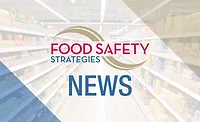How senior transportation executives can be held liable for food safety

The new Food Safety Modernization Act (FSMA), which includes The Sanitary Food Transportation Act, was known to be a game changer. Congress and the FDA promised a complete overhaul on the U.S.’ food safety system—and they did not disappoint. They created rules and regulations not only for food manufactures, but also regulations covering every single element of the food chain – produce rules, controls for animal food, transportation regulations and processes for foreign suppliers.
However, getting organizations to comply to the regulations or getting companies to adhere to their own food safety plans is not going to help achieve the ultimate goal of superior food safety.
That’s why the FDA developed a stronger tool to help enforce FMSA and let the industry know they mean business. Enter The Park Doctrine.
The Park Doctrine is a legal standing from the 1970s that basically states that the FDA, in conjunction with the Department of Justice (DOJ), can legally hold owners, CEOs or senior management liable if they are aware of a food safety issue. If a senior executive, including a food safety manager is aware of a condition where food products can be adulterated, or a condition that could lead to the adulteration of food products and they do not ensure the issue is fixed or looked after in a timely manner, they can be held criminally responsible.
For example, if a chief executive officer or a safety manager of a trucking company is aware there are trailers in the fleet that have deficiencies and therefore are not able to prevent food from becoming unsafe during transportation and does not deal with the deficiencies in an effective manner, they could be held criminally responsible for not following the regulations. The Park Doctrine is the tool that allows the FDA to force the industry to react in a more efficient and effective manner when it comes to non-compliances.
With the Park Doctrine, the FDA can bring misdemeanor criminal charges on senior executives of companies that aren’t doing enough. A single misdemeanor charge can be up to one year in prison or a $250,000 charge per item adulterated. With a misdemeanor charge, unlike a felony charge, the FDA does not need to prove there was intent, just that management failed to act. The FDA would only need to exhibit that any senior executive was aware of the condition that lead to products being adulterated or could possibly lead to products becoming adulterated. If deficient product leads to human illness or worse – loss of life—the FDA with DOJ would examine to see if criminal charges are necessary. As part of that investigation, all companies associated with that food product, including the transportation company, would need to hand over all records and documents associated with the product. Meaning, record-keeping and due diligence is even more important than ever before.
The industry has seen some very well-known, large and successful companies that were progressive in food safety make some fatal mistakes when it comes to food safety decisions; they thought they were doing everything right, and unfortunately, just believing that you are doing everything right is not sufficient anymore. As an owner or a senior executive, it’s important to understand the role you have in implementing food safety.
Looking for quick answers on food safety topics?
Try Ask FSM, our new smart AI search tool.
Ask FSM →
In the transportation industry, it is essential to be proactive in making sure programs are sufficient, procedures are effective and that corrective action procedures are dealt with and followed up on in a timely manner. This will help protect everyone- the public, the company and yourselves.
This article was originally posted on www.refrigeratedfrozenfood.com/.








